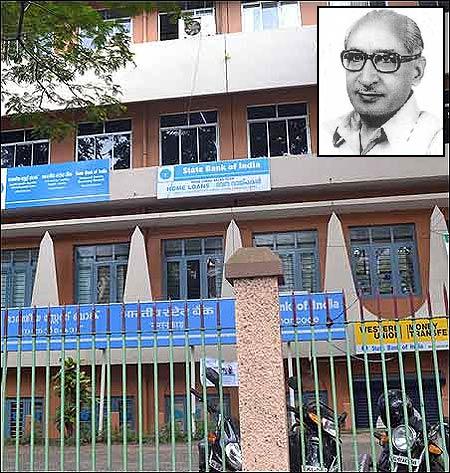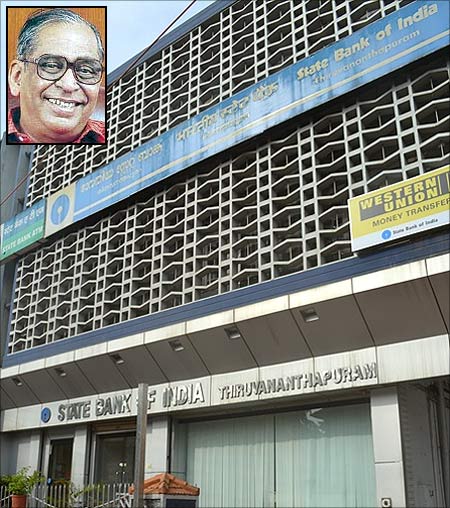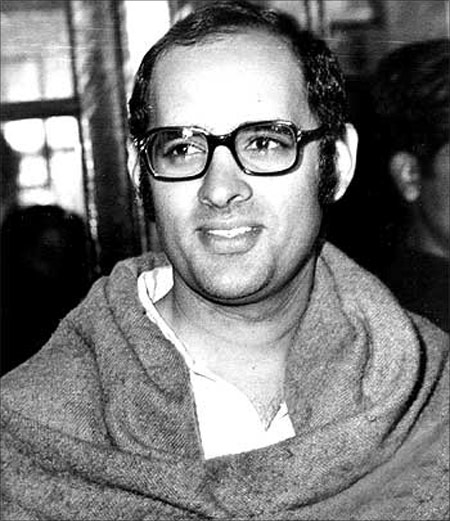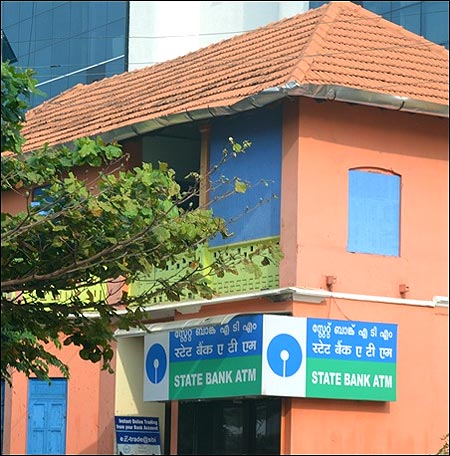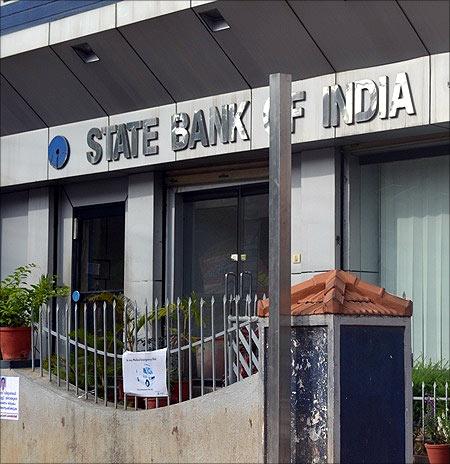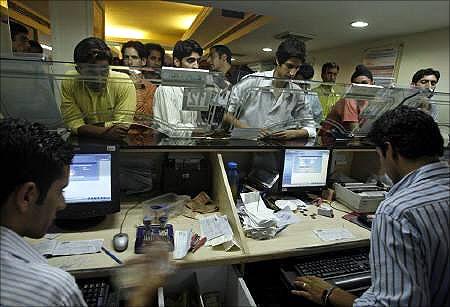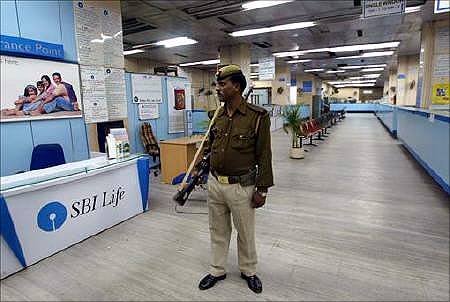 | « Back to article | Print this article |
Why Sanjay Gandhi forced SBI chairman to quit in 1976
This Monday marks the 37th anniversary of the imposition of "internal" Emergency, on June 25, 1975, with President Fakhruddin Ali Ahmed signing the proclamation late at night, even before it had Cabinet approval.
An important vignette about those days has come out, in a booklet written by N Vaghul to honour the memory of R K Talwar, the trail-blazing chairman of State Bank of India (SBI) from 1969 until his abrupt departure in 1976, at the height of the Emergency.
The vignette that deserves a wider audience relates to Talwar's ouster.
Click NEXT to read more...
Why Sanjay Gandhi forced SBI chairman to quit in 1976
Mr Vaghul, who started his own distinguished banking career in SBI, recalls that a cement company to which the bank had given a loan became "sick", with mounting losses.
Seeing that the problem was mismanagement, the bank agreed to a restructuring package provided the company's promoter, also its chairman and CEO, made way for a professional.
Click NEXT to read more...
Why Sanjay Gandhi forced SBI chairman to quit in 1976
The promoter happened to be a friend of Sanjay Gandhi. Sanjay called the finance minister (who, though unnamed, was C Subramaniam; Pranab Mukherjee was nominally under him as minister for revenue and banking), and asked him to direct the bank to waive the condition on change of management.
The minister phoned Talwar, who called for the details of the case, satisfied himself, and informed the minister that the condition could not be waived.
The minister summoned Talwar to Delhi and told him that he had instructions from "the highest authority" in the country.
Click NEXT to read more...
Why Sanjay Gandhi forced SBI chairman to quit in 1976
Talwar stood his ground. This was communicated to Sanjay, who called for Talwar. Talwar refused to meet him, saying he had no constitutional authority. Sanjay's response was swift: Sack Talwar.
This was easier ordered than done, because under the State Bank of India Act the chairman could not be removed without sufficient cause.
So the minister offered Talwar a different assignment, to chair the proposed Banking Commission.
Click NEXT to read more...
Why Sanjay Gandhi forced SBI chairman to quit in 1976
Talwar said he would accept and could do that in addition to being the SBI chairman. The minister looked unhappy, so Talwar observed that the minister seemed to be "very particular" that Talwar not continue as the bank chairman.
The minister admitted that the problem was Talwar's lack of flexibility on the cement company issue, and said that if he did not resign, he would have to be dismissed.
Talwar said he had no intention of resigning, and the minister could decide on dismissal.
Click NEXT to read more...
Why Sanjay Gandhi forced SBI chairman to quit in 1976
As Mr Vaghul tells it, Sanjay next asked the Central Bureau of Investigation (CBI) to look for grounds on which Talwar could be dismissed. It turned out that Talwar had sent appeals to many businessmen, seeking donations for the Auroville project to which he was devoted.
But no businessman was willing to testify that Talwar had spoken to him or tried to persuade him to make a donation.
All that he had done was to forward an appeal signed by the prime minister and the secretary-general of the United Nations (U Thant), recommending the Auroville project for support.
Click NEXT to read more...
Why Sanjay Gandhi forced SBI chairman to quit in 1976
The CBI was forced to close the case. Sanjay now lost all patience, and told the minister to amend the SBI Act so that Talwar could be dismissed without stating the reason.
With opposition leaders in jail, Parliament rubber-stamped the Act's amendment in no time.
The minister told Talwar one final time that if he did not resign he would be dismissed.
Click NEXT to read more...
Why Sanjay Gandhi forced SBI chairman to quit in 1976
Talwar remained defiant. Finally, on August 4, 1976, Talwar was given 13 months' leave and asked to hand over charge to the managing director of the bank.
Even after arming itself with the required powers, the government could not bring itself to sack Talwar.
Mr Vaghul records that there was hardly anyone to see off SBI's greatest chairman that evening, so great was the atmosphere of fear at the time.
